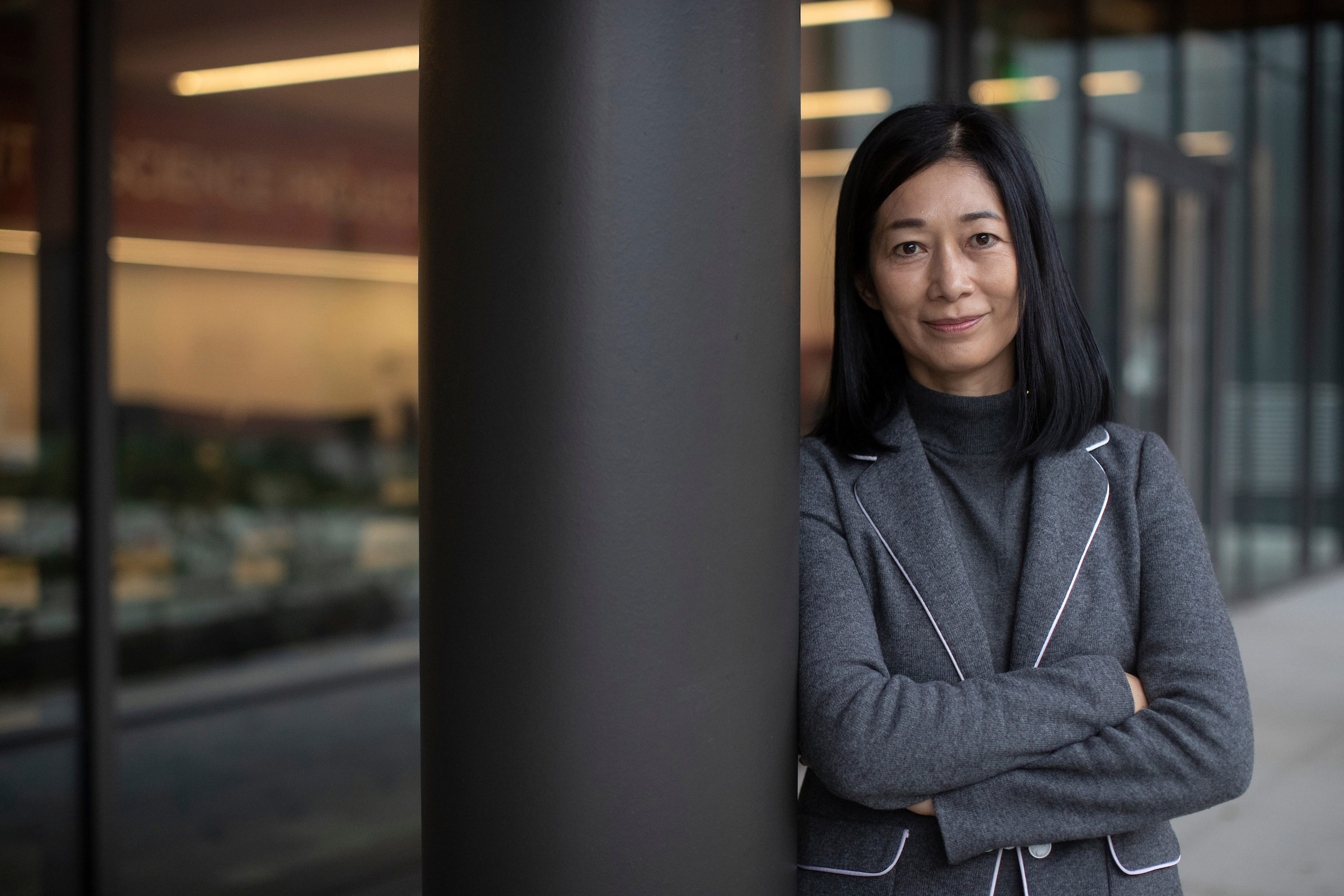
The Joy of Learning
Educating well-rounded students—one of the core tenets of the university’s mission—who are prepared for success in the evolving and innovative field of computer science is the outcome of Wan Bae’s teaching, which focuses on collaboration, motivation, creativity and active learning.
“I am a professor because the goal of this profession is to help students realize their fullest intellectual potential, to train them to become successful professionals and stay engaged in lifelong learning,” says Bae, “and to provide guidance to develop skills to become leaders who work not only for themselves but also for the nation and its people, and further, for all mankind.”
At Seattle University, Bae, an associate professor of Computer Science who started here in fall 2019, teaches mid- and advanced-level undergraduate courses as well as in the Master of Science in Computer Science program. The classes focus heavily on databases, data science, machine learning and artificial intelligence, “which are active and exciting fields of computer science today,” Bae says.
“I prepare my students with a mastery of the most sophisticated mathematical, computational and modeling methodologies and the algorithms of modern artificial intelligence … ”
“Teaching courses … brings a great joy to me. For the next generation of computer science, I prepare my students with a mastery of the most sophisticated mathematical, computational and modeling methodologies and the algorithms of modern artificial intelligence,” she explains. “At the same time, I try to have students think about ethical questions and concerns surrounding machine learning and AI and train students how to best implement advanced technologies.”
In the classroom, Bae says she provides students a balance of theoretical concepts, problem solving and other soft skills.
“I show students the connection between theoretical concepts and their applications and have them feel the joy in learning computer science by applying the theory to solving real-world problems. For example, in my database course, I have designed a rigorous term project where students learn fundamental concepts in theory and technical skills in the process of analysis, design, implementation and testing of non-trivial real-world applications. My active research also helps me to continue bringing that excitement into the classroom. In many ways, my own excitement of discovery in computing problems carries over to my students.”
As a researcher, Bae’s expertise is in areas including spatial and spatiotemporal databases, spatiotemporal data mining, computational geometry and geographic information systems (GIS). Bae explains one of her current research projects that uses the notion of “exposome” to transform health care with a focus on patient-centered care management: “The goal of this research is to develop computational models and algorithms that predict individual-level environmental health risks. This will help to transform the way health and wellness are assessed and managed. … On the individual level, this will reduce patients’ financial burden and play a key role in self-management of health care and thus contribute to the quality of life and wellness improvements. On the societal level, the research findings will improve effectiveness of disease management and treatment.”
Both undergraduate and graduate students are often research collaborators with Bae, who serves as not only teacher but also mentor. Research projects involving students include “Environmental Health Risk Prediction Modeling,” “Urban Carnivore Home Range Analysis“ and “Machine Learning in Early Detection of Plant Diseases”—some of the resulting papers have been published in prestigious conferences and journals in the field. Three graduate students are co-authors of Bae’s published papers and manuscripts she is working on include undergraduate and graduate students as co-authors.
“Throughout these projects, students have had a unique opportunity to extend what they learn in the classroom and to become more creative, persistent and responsible individuals,” says Bae. “I am extremely grateful that I have a chance to work with young, passionate computer scientists who work through the challenging problems with curiosity, patience and hard work.”
